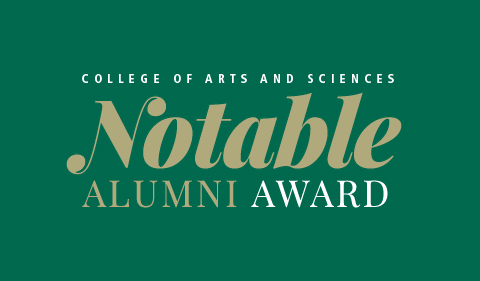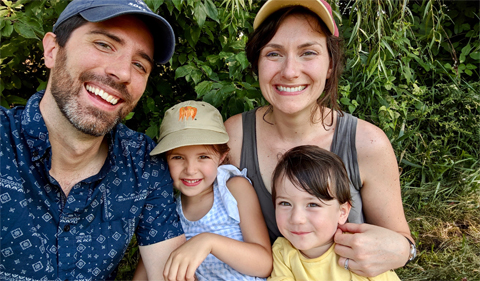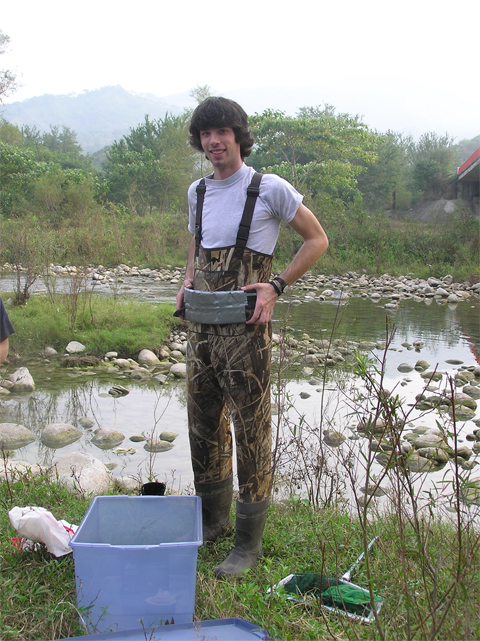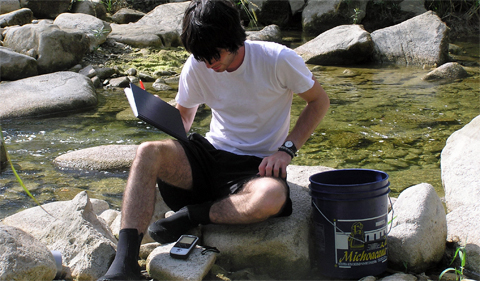
Editor’s Note: The College of Arts & Sciences Notable Alumni Awards honor alumni for broad career accomplishments, commitment to community service, and valuable contributions to Ohio University and the College of Arts & Sciences.
Aiden Shearer ’07 Biological Sciences HTC
Aiden “Eliot” Shearer developed the first genetic test panel for deafness OtoSCOPE®, new technology that has revolutionized the understanding of human hearing loss.
Before his new panel, multiple genetic tests were needed to determine the exact cause of heredity hearing loss.
- See “New Genetic Test for Deafness” in Science Blog.
- Also see “Alumni News | Eliot Shearer Talks about His Research on Pediatric Hearing Loss.”
His next challenges will include gene therapy for hearing loss.
Shearer attributes his entire career trajectory to the incredible role models in HTC Biology at Ohio University, who encouraged him to pursue scientific discovery as a way to improve the lives of others.
A Pathway Started at OHIO
Shearer was born in Delaware, Ohio. A son of a physician on faculty at the Heritage College of Osteopathic Medicine at Ohio University, he attended Athens High School.
While he initially was attracted to far off places for college, being accepted in to the Biological Sciences program in the Honors Tutorial College at Ohio University ended up shaping his entire future.
A first semester tutorial with Dr. Molly Morris, Professor of Biological Sciences, led him on the path of scientific discovery. “Molly was trusting enough to let me start work in her lab analyzing phylogenetics of swordtail fish. I learned polymerase chain reaction (PCR) and genetic sequencing, two skills that are still valuable today (15 years later),” he said.
His two favorite memories at OHIO are “collecting swordtail fish in Mexico using a motorcycle battery strapped to my back (electrofishing!) with Dr. Molly Morris, and studying fly genetics with Dr. Soichi Tanda.”
Other mentors while at Ohio University include Dr. Janet Duerr and Dr. Soichi Tanda, both of whom instilled in him a sense of scientific inquiry. After studying abroad at the University of Edinburgh, Scotland, his junior year, he completed his honors thesis with Dr. Anne Loucks on the physiology of bone metabolism in exercising women.
This combination of genetics and human molecular biology really brought his academic career full circle. Using new massively parallel DNA sequencing technologies developed since the completion of the Human Genome Project, he helped to develop a test for genetic deafness that sequenced all known deafness genes simultaneously.
This genetic testing panel is now available on a clinical basis and has been used for diagnosis of deafness of thousands of children and adults worldwide. The original publication has been cited more than 250 times. Based on initial success in the laboratory during one year out from medical school, Shearer chose to pursue a Ph.D. prior to returning to finish medical school.
This new technology has revolutionized understanding of human hearing loss and similar platforms are used throughout the world.
After medical school Shearer chose to stay in Iowa City and complete a residency in Otolaryngology—Head & Surgery. He then accepted a fellowship in Pediatric Otolaryngology at Boston Children’s Hospital/Harvard Medical School. This fellowship will end in July.
He is currently interviewing for faculty positions at medical schools throughout the country. He will aim to perform basic science research in the laboratory as well as see patients in clinic and perform surgeries. His clinical focus will be cochlear implant surgery and, in the near future, gene therapy for hearing loss.
However, he loves taking care of children with a wide range of disorders of the ears, nose, and throat including pediatric airway disorders and sinus issues. He has co-authored 48 published manuscripts, primarily on genetics of deafness and has co-authored 9 book chapters.
He lives with his two children, George (3) and Freya (6), and his wife, Katie, who is a practicing pediatrician.






















Comments